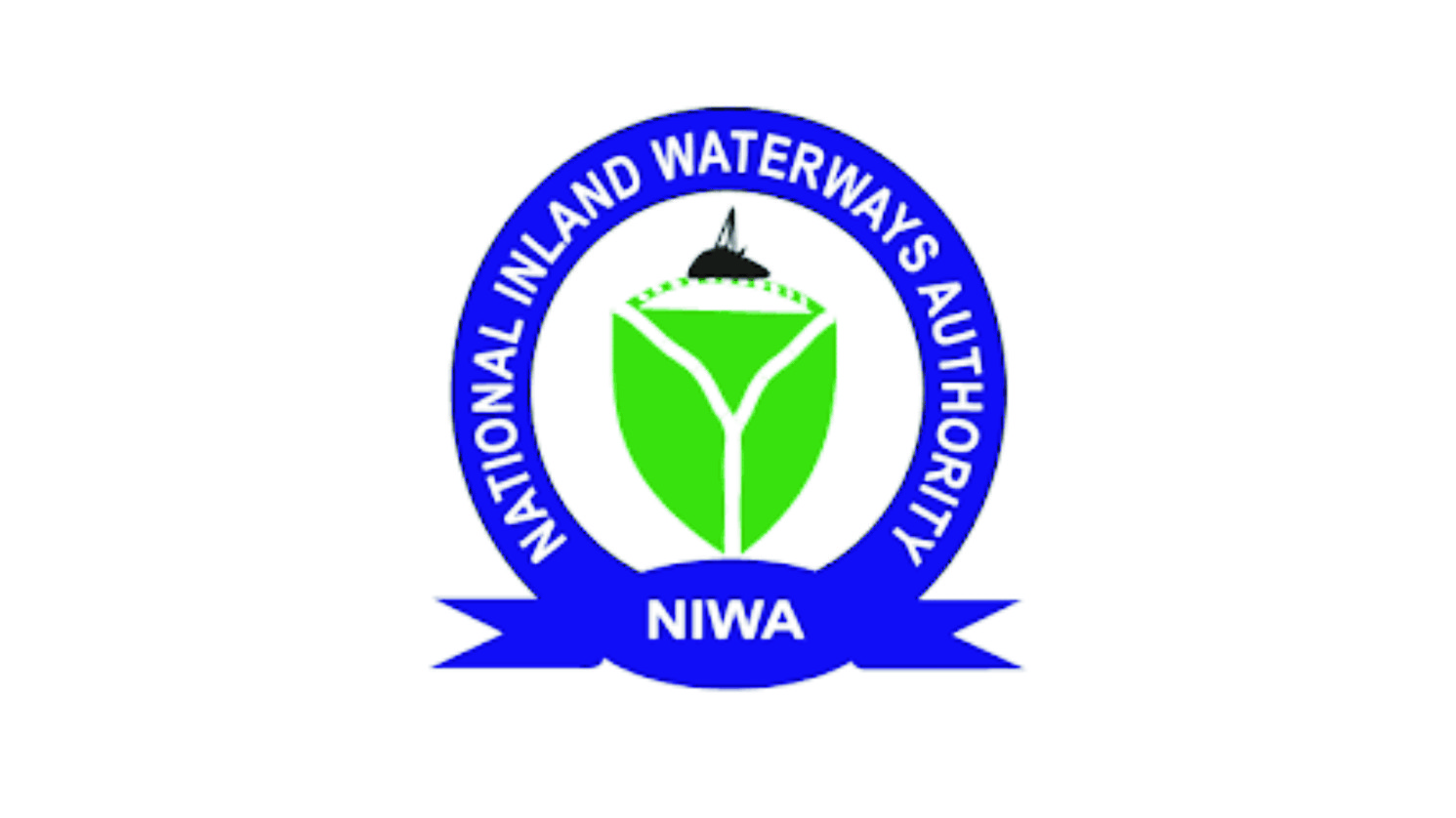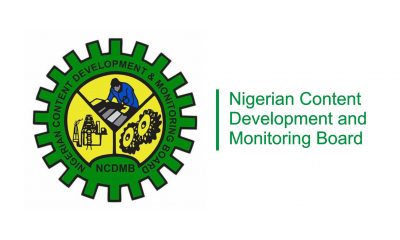Business
NCC Reassures On Protection Of Customers

The Nigeria Communication Commission (NCC) has assured telecommuication consumers that they would continue to get the right value for their money
It also said that it would continue to address challenges in the industry.
The NCC’s Executive Vice Chairman/Chief Executive Officer, Prof. Umar Danbatta, gave the assurance at NCC Day at Lagos International Trade Fair Complex, Tafawa Balewa Square.
He said as the regulator of the industry, the commission is aware of the huge responsibilities of safeguarding the interests of all the stakeholders.
Represented by the commission’s Deputy Director, Consumer Affairs Bureau, Mr. Ismail Adedigba, the NCC boss said the forum was specially organised to strategise with the consumers to seek and proffer solutions to various telecom issues confronting them.
He said: “The NCC as the telecom regulator is aware that this feat of telecom being central to our daily life could not have been achieved without the consumers and as such identifies the consumer as a very important stakeholder in the telecom industry.
“This is evident in the Eight Point Agenda of the commission where the empowerment and protection of the consumers from unfair practices through availability of information and education to make informed choices in the use of ICT services is emphasised.”
Danbatta said the NCC as a regulator has devised ways for subscribers to lodge complaints when they are dissatisfied with the services provided by operators, adding that the commission will also apply appropriate regulatory measures and sanctions against erring service provider.
He said one of the issues affecting telecoms consumers which the commission has proffered solution to is the issue of telemarketing, commonly known as unsolicited text message.
Business
Agency Boss Seeks Improvement In Revenue Collection, Accountability

The Managing Director of National Inland Waterways Authority (NIWA), Mr. Bola Oyebamiji, has called on the management and staff of the brown water regulatory agency to show renewed commitment to boosting revenue generation, enforcing accountability, and improving operational efficiency of the organisation.
Oyebamiji, who made the call recently while declaring open a retreat for NIWA’s top executives and stakeholders in the industry in Lokoja, Kogi State, stressed the need for improved performance across all NIWA offices, particularly in revenue generation.
He expressed concern over the under performance of some area offices, citing cases where annual revenue figures were as low as one or two million Naira.
“This situation is simply unacceptable. Despite management’s provision of resources, incentives, and training opportunities, the expected results were not achieved.
“Moving forward, stricter measures will be enforced to ensure accountability and drive performance”, Oyebamiji stated.
He further addressed the challenges in debt recovery, revealing that many Area Managers failed to cooperate with the debt recovery consultant appointed in 2024.
He said in some instances, debtors were either untraceable or provided inconsistent financial records, making recovery efforts difficult.
“This negative attitude towards financial accountability will no longer be tolerated”, he warned.
The retreat, which brought together key stakeholders including the honourable Minister of Marine and Blue Economy, the Chairman of the House Committee on Inland Waterways, the NIWA Board, Management staff, and security personnels, aims at providing a comprehensive review of the authority’s 2024 performance and establish strategic targets for 2025.
Oyebamiji emphasized that beyond reviewing past performance, the retreat would also focus on capacity building and teamwork to ensure that every officer is well-equipped to meet the set goals.
“This retreat is not just about evaluating past performance, it is about strategizing for the future. I encourage all participants to engage actively, exchange ideas, and work collectively towards making NIWA a leading agency in the marine and blue economy sector”, he concluded.
The two-day retreat featured panel discussions, training sessions, and interactive engagements aimed at strengthening NIWA’s operational framework and fostering a culture of efficiency, accountability, and innovation.
Nkpemenyie Mcdominic, Lagos
Business
NCDMB Scribe Sues For African Collaboration Strategy On Local Content …… Decries Fragmented Implementation
The Executive Secretary of the Nigerian Content Development and Monitoring Board (NCDMB), Engr. Felix Omatsola Ogbe, has charged sub-Saharan African nations to keep pace with unfolding trends in the global oil and gas industry.
He also charged them to adopt a unified approach in strengthening local content development, advancing industrialisation and fostering sustainable continent-wide economic growth.
Ogbe stated this in a keynote address he gave at the 9th Sub-Saharan African International Petroleum Exhibition and Conference (SAIPEC), in Lagos, last Tuesday.
According to him, nations such as Nigeria, Angola, and Ghana have made notable strides in local content development by boosting indigenous participation in the oil and gas sector.
He, however, expressed regret that fragmented implementation continues to hinder collective progress.
The NCDMB scribe called for a collaborative strategy among petroleum-producing nations in sub-Saharan Africa that would foster the sharing of best practices and enhance cross-border partnerships that could drive the competitiveness of indigenous players.
In his paper entitled “Sub-Saharan Africa Local Content Collaboration Strategy”, Engr. Ogbe identified harmonisation of local content policies, human capital development, investment in infrastructure, funding for local companies and technology transfer, as key pillars to Africa’s collaboration strategy.
He noted that “there is a need to develop a robust local content framework that positions the region for long-term economic prosperity”, and that this could be fostered “through the collaborative efforts of the African Petroleum Producers Organisation (APPO), and the United Nations Economic Commission for Africa and the African Union”.
The NCDMB boss also highlighted the importance of the African Continental Free Trade Agreement (AfCFTA) as a critical legal framework that could be leveraged to achieve collaborative local content strategy in Africa, given the free trade area it has created by integrating 1.3 billion people across 54 African countries with a combined gross domestic product of over $3 trillion.
On human capital development, which he described as “pivotal to the successful implementation of local content”, he observed that approximately 60% of Africa’s population is currently under the age of 25, and that this teeming population provides a unique opportunity to fast-track development.
Ariwera Ibibo-Howells, Yenagoa
Business
ICTN Not Threat To Trade Efficiency – SEREC … Blames Unregulated Charges, Others
The Sea Empowerment and Research Centre (SEREC) has in strong terms countered claims that the proposed International Cargo Tracking Note (ICTN) is detrimental to Nigeria’s economy.
Contrarily, SEREC said rather, it’s unregulated charges, informal levies, and multiple taxation that pose a far greater threat to trade efficiency and port competitiveness.
In a recent publication, SEREC expressed concern over the misrepresentation of ICTN’s role, particularly in media reports suggesting it would “kill the economy”.
The research center emphasised that ICTN, if properly implemented, would add real value to the port system by enhancing trade transparency, streamlining import statistics, and improving regulatory oversight.
“If we are sincerely concerned about charges that are ‘killing the economy,’ then our focus should be on the various hidden and unregulated costs currently imposed on shippers”, SEREC’s Head of Research, Eugene Nweke, siad.
SEREC provided a detailed breakdown of excessive charges affecting shippers.
These charges, according to the Centre, significantly contribute to inefficiencies in Nigeria’s port system, increasing the cost of trade and making logistics unpredictable.
One of the major concerns raised in the publication is the “Seven per cent Port Development Levy”, which continues to be collected despite the port concession regime.
In addition, “various unregulated terminal handling charges, positioning fees, scanning fees, and labour costs” have further added to the financial strain on shippers.
The “ETO Trucking Fee”, set at N100,000 per truck for entry and exit at terminals, is another significant burden, the Centre noted. Meanwhile, “arbitrary trucking costs” which are unilaterally determined by service providers create further unpredictability in the logistics chain.
SEREC also highlighted the issue of “informal payments and settlements”, which it said involved “unreceipted fees” at different cargo clearance points.
These hidden costs, coupled with “security agency tolls” allegedly imposed by government security operatives along cargo routes make cargo movement more expensive. Additionally, the Centre criticised the “state-favourably on the global stage.”
Given these arguments, SEREC is calling for the “immediate implementation of ICTN” to restore order and efficiency in Nigeria’s port system.
The research Centre argues that ICTN should not be grouped with arbitrary charges but should be seen as a “structured, value-adding fee with a clear function”.
Nweke assured that “by the time the implementation fully runs through a period, the effects and contributions to the port system and its impact is felt by all, then, those who are initially in doubt of the effectiveness of the ICTN would have no option but to embrace and appreciate the enabling device (ICTN)”.
-
Entertainment5 days ago
Toyin Lawani Cries Out Over Side Effects Of Epidural
-
Sports55 mins ago
‘Don’t Rely Too Much On NCAA Athletes’
-
News5 days ago
Odu Consoles Justice Okirie On Mother’s Demise
-
Politics5 days ago
No Delta Assembly PDP Lawmaker Defecting To APC – Majority Leader
-
Nation5 days ago
Nigerian Police Debunk Reports Of Missing 3, 907 Firearms
-

 Business5 days ago
Business5 days agoHuman Capital Deficit Cost Nigeria USD380bn Capital Flight, Others – NCDMB
-
Entertainment5 days ago
Tems Becomes Co-owner Of MLS Club
-
Sports53 mins ago
Rangers Showed Character In Remo Defeat – Coach

